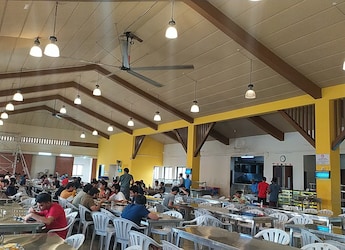Have you ever wondered how long it takes for the food you eat to traverse your digestive system? The human digestive tract is a remarkable and complex system responsible for breaking down the food we consume into nutrients that our bodies can absorb and utilize. The journey of food through this intricate network of organs and tissues is both fascinating and essential to our overall well-being. In this article, we will explore the stages of digestion and provide insights into the duration it takes for food to travel from your mouth to its final destination.
The Phases Of Digestion: What Are The 5 Stages Of Digestion?
Digestion is a multi-faceted process orchestrated by various organs and tissues to dismantle and assimilate nutrients from ingested food. Key stages encompass:
1. Ingestion:
Commencing with the introduction of food into the oral cavity, the process involves mastication and the initiation of carbohydrate breakdown through salivary gland-produced saliva.
2. Journey through the Esophagus:
Post-ingestion, food traverses the esophagus, a muscular conduit connecting the oral cavity to the stomach. This transit takes a matter of seconds.
3. The stomach:
Food enters the stomach, where it undergoes mixing with gastric juices and digestive enzymes. This organ serves as a pivotal site for the comprehensive breakdown of food particles, typically lasting 2 to 4 hours, resulting in a semi-liquid state termed chyme.
4. The small intestine:
Following gastric processing, partially digested food enters the small intestine - the primary location for nutrient absorption. This segment, comprising the duodenum, jejunum, and ileum, spans approximately 4 to 6 hours. Here, digestive enzymes and bile further break down chyme into constituent nutrients-proteins, carbohydrates, and fats – allowing absorption into the bloodstream.
5. The large intestine:
The remaining material, predominantly composed of water, fibre, and undigested substances, progresses into the large intestine or colon. Over a duration of 12 to 48 hours, the colon facilitates the absorption of water and electrolytes from residual material, ultimately forming feces.
Recent studies indicate gastric emptying time (GET) ranging from 3.3 to 7 hours, small intestinal transit time (SITT) at 3.3 to 7 hours, colonic transit time (CTT) spanning 15.9 to 28.9 hours, and whole gut transit time (WGTT) extending from 23.0 to 37.4 hours.
Also Read: Feeling Constipated? 5 Healthy Drinks That May Help Regulate Digestion
Photo Credit: iStock
How Long Does It Take To Digest Food? Why Food Transit Time Is Unique For Everyone?
Several factors contribute to the variation in food transit time among individuals:
1. Type of food:
The composition of a meal significantly influences digestion time. Simple carbohydrates digest quickly, while complex carbohydrates, proteins, and fats exhibit prolonged breakdown periods. Foods rich in insoluble fibre, such as fruits, tend to move swiftly, while meats may require up to 2-3 days for completion.
2. Fibre content:
High-fiber foods, including fruits, vegetables, and whole grains, generally navigate the digestive system more slowly.
3. Age:
Digestive processes may decelerate with age, resulting in extended transit times. Children and infants commonly experience faster digestion than adults.
4. Metabolism:
Individuals with a higher metabolism often undergo expedited digestion, whereas those with a slower metabolism may exhibit prolonged food transit.
5. Hydration:
Adequate hydration is integral for efficient digestion. Inadequate water intake may lead to constipation and a slowdown in transit time.
6. Exercise:
Physical activity correlates with improved metabolism, potentially expediting food transit through the digestive system.
7. Medical conditions:
Certain health conditions, such as irritable bowel syndrome (IBS), thyroid dysfunction, diabetes, or gastrointestinal disorders, can significantly impact digestion, resulting in either accelerated or delayed transit times.
So, what does transit time mean for human health? Its impact extends to gut health and, consequently, to the prevention, treatment, and management of GI malfunctions, diabetes, and lifestyle diseases, including obesity and postprandial sugar control. I haven't found any studies, but common sense and my nutrition training indicate that consuming more in the first half of the day would undoubtedly have a significant impact on health. Additionally, having early dinners and lighter meals in the evening would also help in avoiding GI symptoms.
